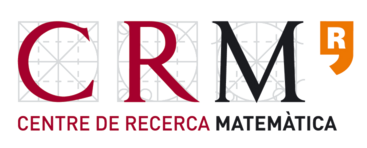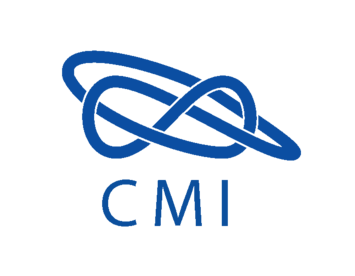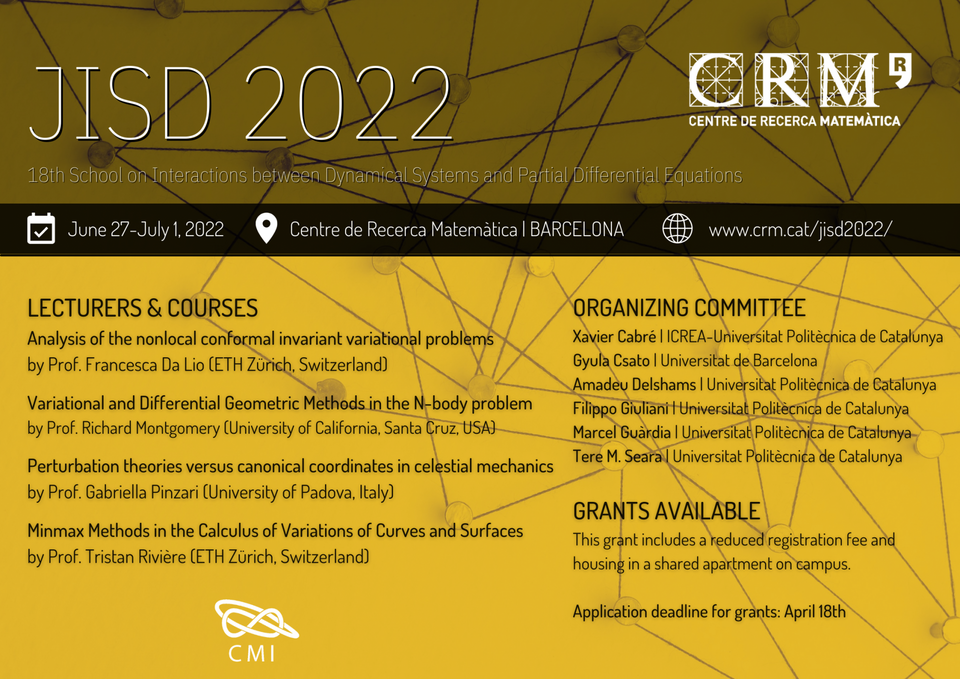18th School on Interactions Between Dynamical Systems and Partial Differential Equations (JISD2022)
Sign into July 01, 2022
SCHEDULE
PHOTO GALLERY
JISD PAST EDITIONS
Organised in partnership with the  Clay Mathematics Institute
Clay Mathematics Institute
Presentation
Lecturers & Courses
There has been a lot of interest in recent years for the analysis of free-boundary minimal surfaces. In the first part of the course I will recall some facts of conformal invariant problems in 2D and some aspects of the integrability by compensation theory . In the second part I will show how this theory can be extended to the nonlocal framework
____________________________________________________________________
Some animations, pictures, links and pointers to papers … concerning the classical N-body problem and its solutions: https://people.ucsc.edu/~rmont/NbdyB.html
____________________________________________________________________
____________________________________________________________________
Organizing Committee
| Xavier Cabré | ICREA and Universitat Politècnica de Catalunya |
| Gyula Csato | Universitat de Barcelona |
| Amadeu Delshams | Universitat Politècnica de Catalunya |
| Filippo Giuliani | Politecnico di Milano |
| Marcel Guàrdia | Universitat Politècnica de Catalunya |
| Tere M. Seara | Universitat Politècnica de Catalunya |
Scientific Committee
| Scott Amstrong | Université Paris – Dauphine |
| Jean Pierre Eckmann | Université de Genève |
| Jean-Michel Roquejoffre | Paul Sabatier University |
| Susanna Terracini | Università de Torino |
Poster session participants
Irene De Blasi | University of Turin | Abstract
Mar Giralt Miron | Universitat Politècnica de Catalunya | Abstract
Habib Fourti | University of Monastir | Abstract
Rosa Fuster Aguilera | University of Colorado Boulder | Abstract
Jaime Paradela | Universitat Politècnica de Catalunya | Abstract
Marcos Solera Diana | Universitat de València | Abstract
Óscar Rodríguez | University of Pisa | Abstract
Chakir Tajani | Abdelmalek Essaadi University | Abstract
Poster session information
To apply, please select the relevant option during the registration process.
- Deadline: April 18th, 2022.
- Resolutions will be sent before May 10th, 2022.
Registration
The registration fee includes lunch and coffee breaks.
list of Participants
| Name | Institution |
|---|---|
| Skander Charfi | Université de Paris |
| Iryna Vasylieva | University of Klagenfurt |
| Mar Giralt Miron | Observatoire de Paris |
| Jean-Michel Roquejoffre | Toulouse III-Paul Sabatier University |
| Gyula Csato | Universitat de Barcelona |
| Álvaro Fernandez Mora | Universitat de Barcelona |
| Arturo Vieiro Yanes | Universitat de Barcelona |
| Ainoa Murillo López | Universitat de Barcelona |
| Alejandro Haro Provinciale | Universitat de Barcelona |
| Marcel Guardia Munárriz | Universitat de Barcelona |
| Carles Simó | Universitat de Barcelona |
| Andrew Clarke | Universitat de Barcelona |
| Miquel Barcelona Poza | Universitat Autònoma de Barcelona |
| Albert Mas Blesa | Universitat Politècnica de Catalunya |
| MICHAEL ORIEUX | Universitat Politècnica de Catalunya |
| Josep Joaquim Masdemont Soler | Universitat Politècnica de Catalunya |
| Carles Bonet | Universitat Politècnica de Catalunya |
| Gemma Huguet Casades | Universitat Politècnica de Catalunya |
| Inmaculada Baldomá Barraca | Universitat Politècnica de Catalunya |
| Jordi Villanueva | Universitat Politècnica de Catalunya |
| Rafael Ramírez-Ros | Universitat Politècnica de Catalunya |
| Joaquim Puig | Universitat Politècnica de Catalunya |
| David Reyner Parra | Universitat Politècnica de Catalunya |
| Pere Gutiérrez i Serrés | Universitat Politècnica de Catalunya |
| Chara Pantazi | Universitat Politècnica de Catalunya |
| Antoni Guillamon Grabolosa | Universitat Politècnica de Catalunya |
| Román Moreno González | Universitat Politècnica de Catalunya |
| José Lamas Rodríguez | Universitat Politècnica de Catalunya |
| Óscar Rodríguez | Universitat Politècnica de Catalunya |
| Mercè Ollé Torner | Universitat Politècnica de Catalunya |
| Renzo Bruera | Universitat Politècnica de Catalunya |
| Joan Solà-Morales | Universitat Politècnica de Catalunya |
| Gerard Farré | Universitat Politècnica de Catalunya |
| Pau Martín de la Torre | Universitat Politècnica de Catalunya |
| Juan Ramón Pacha Andújar | Universitat Politècnica de Catalunya |
| Enric Florit Simon | Universitat Politècnica de Catalunya |
| Jaime Paradela | Universitat Politècnica de Catalunya |
| Xavier Cabré Vilagut | Universitat Politècnica de Catalunya |
| Maria Teresa Martinez-Seara Alonso | Universitat Politècnica de Catalunya |
| Amadeu Delshams i Valdés | Universitat Politècnica de Catalunya |
| Jose Tomás Lázaro Ochoa | Universitat Politècnica de Catalunya |
| Esther Barrabés Vera | Universitat de Girona |
| Yuri Fedorov | Universitat Internacional de Catalunya |
| Jing Wu | Universidad de Granada |
| Marcos Solera Diana | Universitat de València |
| Mikel Ispizua | Universidad Autónoma de Madrid |
| Richard Montgomery | University of California |
| Iñigo Urtiaga Erneta | Rutgers |
| CHEBBAB Mesbah | Ghent University |
| Archishman Saha | University of Ottawa |
| Anirban Dutta | Queen's University |
| Haixia Chen | Central China Normal University |
| Dorian Martino | Paris Diderot University - Paris 7 |
| Bhanu Kumar | Ruprecht Karl University of Heidelberg |
| Tobias Witt | Ruprecht Karl University of Heidelberg |
| Gabriella Pinzari | University of Padua |
| Irene De Blasi | University of Turin |
| Gian Marco Canneori | University of Turin |
| Stefano Vita | University of Turin |
| Margaux Introna | University of Turin |
| Giorgio Tortone | University of Pisa |
| Giovanni Siclari | University of Milan - Bicocca |
| Filippo Giuliani | Polytechnic University of Milan |
| Pedro Porras Flores | National Autonomous University of Mexico |
| Jakub Tomaszewski | Jagiellonian University |
| Dawid Bucki | Jagiellonian University |
| Pedro Dias | University of Lisbon |
| Gerard Orriols | Swiss Federal Institute of Technology in Zurich |
| Matilde Gianocca | Swiss Federal Institute of Technology in Zurich |
| Rosa Fuster Aguilera | University of Colorado Boulder |
| Samuel Akingbade | Yeshiva University |
| Clara Cufí-Cabré | Centre de Recerca Matemàtica |
| Joaquín Domínguez de Tena | ICMAT |
Grants
Application deadline for grants: April 18th (Resolutions will be sent in a few days)
INVOICE/PAYMENT INFORMATION
IF YOUR INSTITUTION COVERS YOUR REGISTRATION FEE: Please note that, in case your institution is paying for the registration via bank transfer, you will have to indicate your institution details and choose “Transfer” as the payment method at the end of the process.
UPF | UB | UPC | UAB
*If the paying institution is the UPF / UB/ UPC / UAB, after registering, please send an email to vramirez@crm.cat with your name and the institution internal reference number that we will need to issue the electronic invoice. Please, send us the Project code covering the registration if needed.
Paying by credit card
IF YOU PAY VIA CREDIT CARD but you need to provide the invoice to your institution to be reimbursed, please note that we will also need you to send an email to vramirez@crm.cat providing the internal reference number given by your institution and the code of the Project covering the registration (if necessary).
Lodging information
ON-CAMPUS AND BELLATERRA
BARCELONA AND OFF-CAMPUS
Organized by

Acknowledgements

JISD 2022 es una actividad relacionada con la RED de ecuaciones en derivadas parciales no locales y aplicaciones, RED2018-102650-T.
|
For inquiries about the program please contact the research programme’s coordinator Ms. Núria Hernández at nhernandez@crm.cat
|



